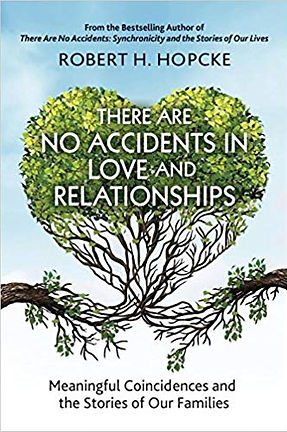Unexpected Pieces of Our Hearts:
How Synchronicity Shapes the Stories of Our Families
Presented by
Robert H. Hopcke, MFT
Sunday, April 14, 2019, 4:00 – 6:00 pm
Jung’s concept of synchronicity or meaningful chance is one of his most engaging and familiar. In this lecture, Rob Hopcke will be presenting the four aspects of synchronistic events that make up Jung’s thoughts on this phenomenon in order to place this notion within the overall context of Jung’s theories on analytical psychology. Using his own recent research on synchronistic events within family and love relationships specifically, he will be using these stories to show how synchronicity operates through the archetype of “family” unconsciously to create wholeness in our lives through what seems at first to us like random chance.
Course objectives:
Understand the concept of synchronicity and why this concept is important to the later theoretical work of C.G. Jung within the context of his analytical psychology
Describe the four distinctive aspects of synchronistic events that differentiate them from ordinary coincidences
Identify the archetypal foundation of synchronistic events and use that awareness to discern the subjective meaning of these events as they may occur to themselves or to others
Robert H. Hopcke, MFT has been in private practice in Berkeley, California since 1986. He is the author of the 1997 bestseller There Are No Accidents: Synchronicity and the Stories of Our Lives, which has been translated into over a dozen languages, and most recently followed by his latest work, There are No Accidents in Love and Relationships: Meaningful Coincidences and the Stories of Our Families. His books in other areas include some now standard scholarly reference works within the field of analytical psychology, including Jung, Jungians and Homosexuality; Men’s Dreams, Men’s Healing; A Guided Tour of the Collected Works of C. G. Jung; and The Persona: Where Sacred Meets Profane. He also taught for a number of years at the Institute for Transpersonal Psychology, now Sofia University, in Palo Alto, California.

